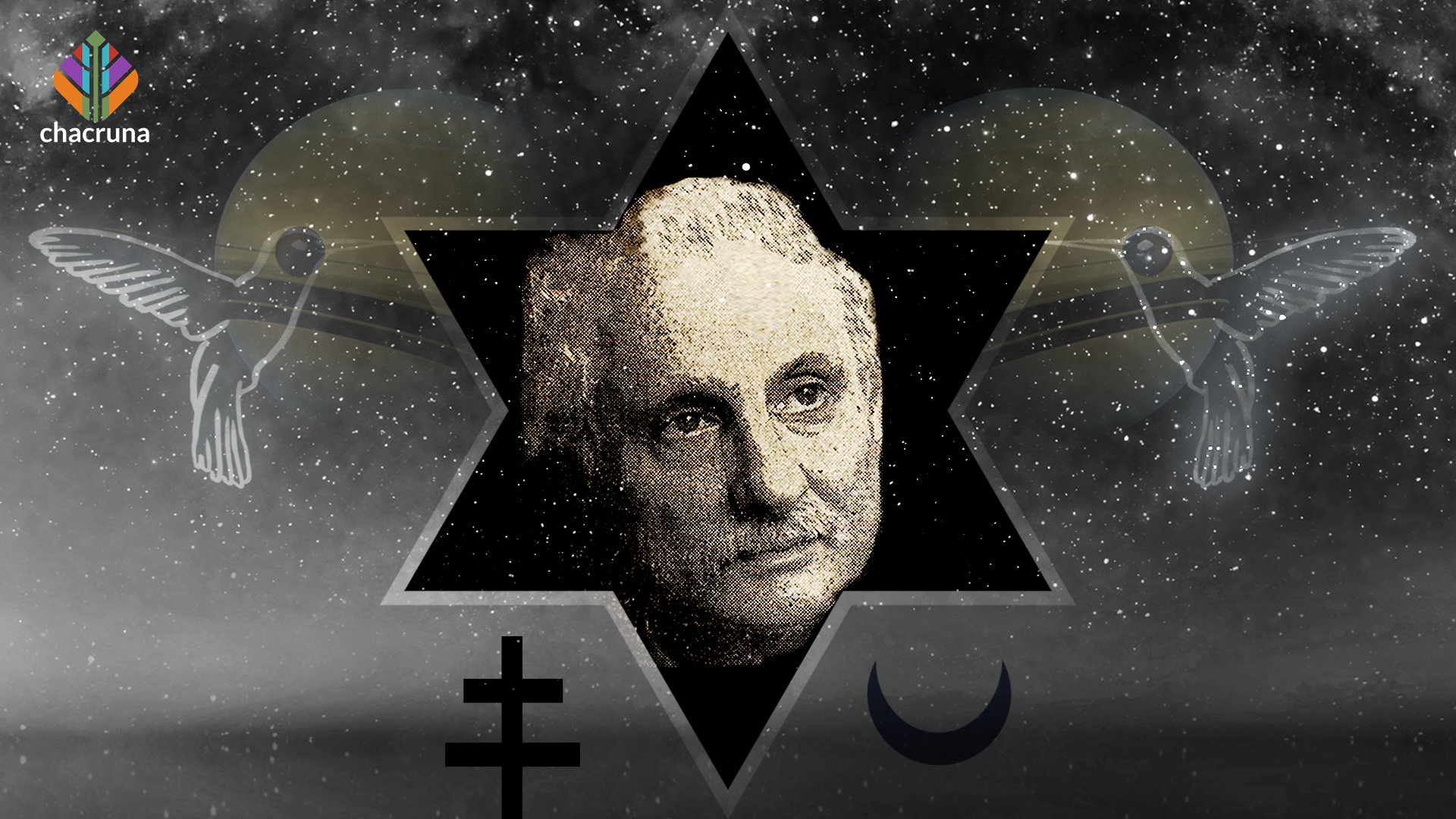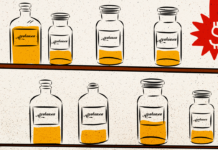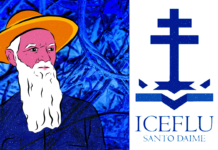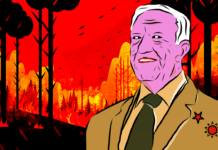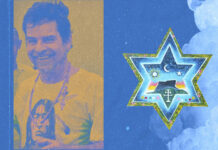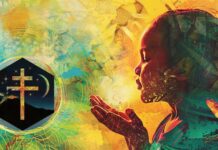- Introduction to Women and Psychedelics - July 26, 2024
- Eight Frequently Asked Questions About Ayahuasca Globalization - February 13, 2024
- Ten Tips for Standing in Solidarity with Indigenous People and Plant Medicines - January 18, 2024
At 9 a.m. on August 17, 2020, the ayahuasca community said goodbye to one of its most important and discreet champions: the Brazilian lawyer Domingos Bernardo.
if you can take ayahuasca safely in places as diverse as Brazil, the United States and Spain, and you witness the the increasing popularization of the sacred drink and its diversity of cultural forms and uses, you probably have Domingos Bernardo to thank.
Perhaps you have not yet become properly acquainted with him and his work, but today, if you can take ayahuasca safely in places as diverse as Brazil, the United States and Spain, and you witness the the increasing popularization of the sacred drink and its diversity of cultural forms and uses, you probably have Domingos Bernardo to thank. He was the author of the groundbreaking legal report that recognized, for the first time, the legitimacy of the ritual use of ayahuasca in Brazil back in the 1980s, clearing the way for the expansion and legalization of the use of the drink internationally.

Domingos Bernardo Gialluisi da Silva Sá was born in Brazil in the city of Rio de Janeiro, on August 20, 1941, during the Second World War. The second of seven brothers, and known as the “little saint” because of his gentle and kind temperament, he was sent as a child to study in the seminary to become a priest. After his father’s death, the course of his studies changed and, far from the seminary, he met Ana Maria Lessa, fell in love, and eventually married her at the end of the 1960s. Domingos trained at the National Faculty of Law and constructed a brilliant career as an attorney, working for the government and writing a number of important and pioneering books on the question of drugs in Brazil.
Openminded at a time when Brazil was living through the specter of the military dictatorship, he always saw the theme of drugs as a public health issue rather than a criminal problem. Moreover, it was as a lawyer that Domingos Bernardo provided an invaluable service to the entire ayahuasca community.
The use of ayahuasca has been persecuted and subject to a variety of legal threats over the decades. The United States, in fact, was the first nation to make DMT illegal, in 1970, which was followed by various other countries culminating in the signing of highly prohibitive transnational treaties, such as the 1971 Vienna Convention on Psychotropic Substances.
The situation was not much different in Brazil, and ayahuasca was threatened with a legal ban on several occasions. In 1985, for example, the vine Banisteriopsis caapi, used in ayahuasca preparation, was added to the list of banned substances by DIMED (the Brazilian Health Ministry’s Medications Division) for several months (Goulart, 2004). This stance drew protests from the ayahuasca community, which sent a petition challenging the decision (Labate & Feeney, 2012).
Then, in 1986, CONFEN (the Federal Narcotics Council) set up a commission with the task of assessing the religious use of ayahuasca. This was when Domingos Bernardo came to perform a fundamental role. His path was led by forces mysterious and imponderable, qualities always present in the ayahuasca universe. This is because Domingos Bernardo was not initially part of the commission, which was headed by another lawyer. It was only when the latter asked to be replaced that Bernardo was invited to assume its presidency.
Thereafter, the governmental and legal treatment given to ayahuasca, until then based on the policy of the War on Drugs, changed. The commission led by Bernardo adopted a posture reflective of anthropological sensibility, conducting a series of investigative visits to ayahuasca communities. Domingos visited centers of Santo Daime, União do Vegetal (UDV), and Barquinha. He talked at length with their representatives and participated in rituals in order to observe them and understand them better without prejudice

This research gave rise to the final report of the CONFEN Working Group, a document signed in 1987 by Domingos Bernardo that represents a true watershed in the history of ayahuasca in Brazil. This work ensured permission for religious use of ayahuasca, and opened the way for later resolutions at national and international level favorable to the freedom to use the sacred drink.
As the federal judge Jair Facundes, a scholar of ayahuasca in the area of law, shared with us: “Every ayahuasca user, especially those interested in the history of this drink, should have a copy of Domingos’ report.”
After this decisive participation, he continued to be involved in the decision-making processes on ayahuasca’s legality, always prioritizing the protection of minority groups, religious freedom, and conscience in the face of social pressures for its ban. Following his humanist principles, he restated his stance in CONFEN’s final report, issued in 1992. During the research to elaborate the report, he even traveled to the Amazon, taking his children and family members to visit Céu do Mapiá, the global center of Santo Daime, where he took part in various rituals, like the feitio (manufacture) and the healing ceremonies (“works”).
Speaking about Santo Daime, Luiz Mendes do Nascimento, one of the biggest historical leaders of this Brazilian religion, called Bernardo “Nicodemus,” in an allusion to the Biblical figure who was a member of the Sanhedrin but followed Christ, making it clear that, although an agent of the State, Domingos was a defender of ayahuasca communities.

It was precisely because of his benevolent attitude to ayahuasca groups that Domingos Bernardo was criticized by conservatives and harassed by the media, which even questioned his impartiality and his motives for acting in favor of the freedom to use ayahuasca in Brazil
It was precisely because of his benevolent attitude to ayahuasca groups that Domingos Bernardo was criticized by conservatives and harassed by the media, which even questioned his impartiality and his motives for acting in favor of the freedom to use ayahuasca in Brazil (“Folha de São Paulo,”1995).
Even so, he never retreated and indeed worked as CONAD’s legal consultant in the proceedings that culminated in Resolution 01 of 2010, the most recent document regulating ayahuasca use in the country (CONAD, 2010).
The anthropologist Edward MacRae, one of the most prominent Brazilian researchers of ayahuasca, was keen to share some of his experience with Bernardo:
Over the course of my activities, campaigning for changes to public policies on drugs, I had the chance to encounter various times the renowned legal expert, Dr. Domingos Bernardo Gialluisi da Silva Sá. On these occasions, I was able to observe a similarity between our aims, although he was undoubtedly a much more refined and effective speaker and political operator than me.
During the meetings we had to discuss the elaboration of the last two CONFEN reports and, later, in the Working Group set up by CONAD, I was able to appreciate the importance of his work, rejecting any attempt to discriminate against the rights of ayahuasca users in general and insisting on the inclusion of followers of Padrinho Sebastião among the groups legally entitled to use the substance by the incoming regulations. Possessing a high spiritual sensibility, he had great respect for ayahuasca since, in 1985, he visited Céu do Mapiá in Amazonas State, where he was touched in a profound and long-lasting way. Thereafter, he dedicated much of his time and attention to the question of the official recognition and regulation of the religious use of ayahuasca. I consider his work to have been the main factor responsible for the freedom of our sacramental drink in Brazil. (E. MacRae, personal communication, September, 2020)
Bia Labate, Executive Director of the Chacruna Institute, also shares similar sentiments:
Domingos was instrumental in the legal regulation of ayahuasca in Brazil, where we created an unprecedented system of rules based on dialogue between religious representatives, researchers, and government agencies.
Another one of the greats is gone. Domingos Bernardo was not only a lawyer and legal scholar, but also an old-fashioned humanist who was curious about everything. He was generous and friendly, a true gentleman. It was an honor for me to publish his writings in my edited volumes about ayahuasca. Domingos was instrumental in the legal regulation of ayahuasca in Brazil, where we created an unprecedented system of rules based on dialogue between religious representatives, researchers, and government agencies. This regulatory system for ayahuasca in Brazil has in turn influenced legislation worldwide. We will always be grateful for the spirit of this visionary man who recognized our legitimate and fundamental rights to spirituality. (B. Labate, personal communication, September, 2020)
Alongside the admiration for his work, everyone who knew him is unanimous in emphasizing his personal qualities and the sweetness and sensitivity that he maintained in his social relations. Characteristics that made him capable of transiting with equal agility and friendship between legal offices, government rooms, and ayahuasca temples.
In addition to being a lawyer, Domingos Bernardo was also a collector of friends, who he harvested everywhere he went. One of his children, Leonardo Sá, tells us a little about his more intimate and personal side:
My father liked wine, friends, family, gathering people… sitting together on a Sunday, talking about politics. He was passionate about sculpture and made a variety of his own. He cultivated friends and affection. He loved books and read a lot. And, in the free hours, he adored smoking a cigar and a pipe too. (L. Sá, personal communication, August, 2020)
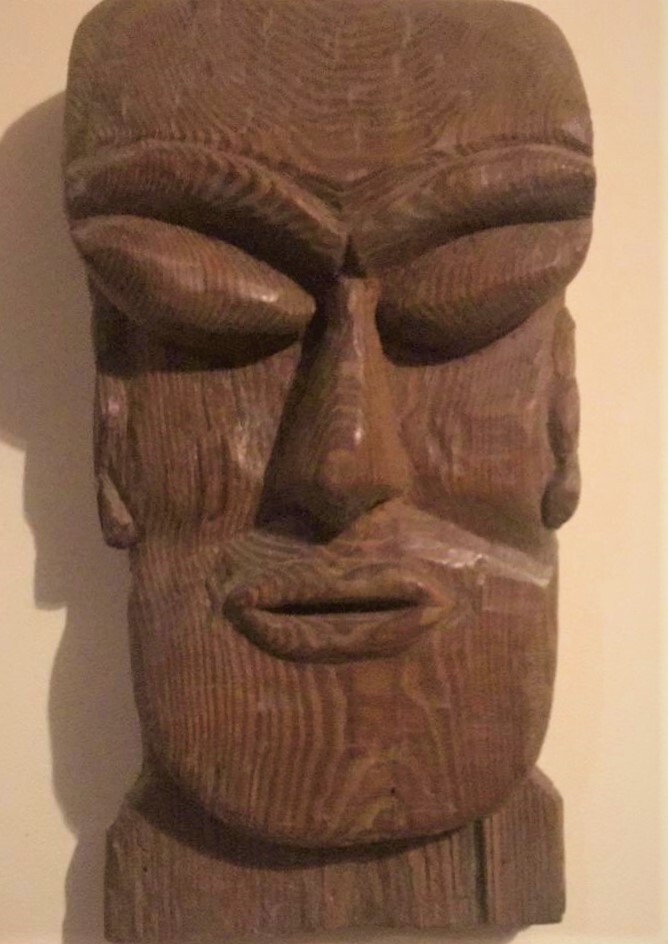
Domingos used to say that, “it is by walking that one finds the path.” And, in his luminous walk in defense of the freedom to use ayahuasca, he wrote:
I state, with serene conviction, that the search for a particular form of perception, undertaken by ayahuasca users in their “sessions” or “works,” cannot be defined, unthinkingly, as hallucination if we take the term to mean craziness or mental insanity. There was rather the observation of a reality rigorously shared by all of them: the awareness of expanding individual and communitarian virtualities in search of the sacred and of self-knowledge. (Silva Sá, 2007, p.33)
Far ahead of his time and the legal and pharmacological approaches of the era, he reflected: “So-called hallucination is very often the pretext for excommunication of those who have found ‘the door’ and dare to cross it.” (Silva Sá, 2007. p. 30)
Domingos Bernardo had three sons, four granddaughters and one great-granddaughter. He completed his journey three days before his 79th birthday. He leaves for us an example of an inspiring life that combined courage with candor, erudition with simplicity, fight with generosity and justice with kindness.
Domingos Bernardo had three sons, four granddaughters and one great-granddaughter. He completed his journey three days before his 79th birthday. He leaves for us an example of an inspiring life that combined courage with candor, erudition with simplicity, fight with generosity and justice with kindness. He leaves behind an immense legacy in favor of the legal recognition of ayahuasca use in Brazil and in the world; a legacy that should be honored by each and every one of those who, like him, defends the liberty, diversity, and rights of minorities.
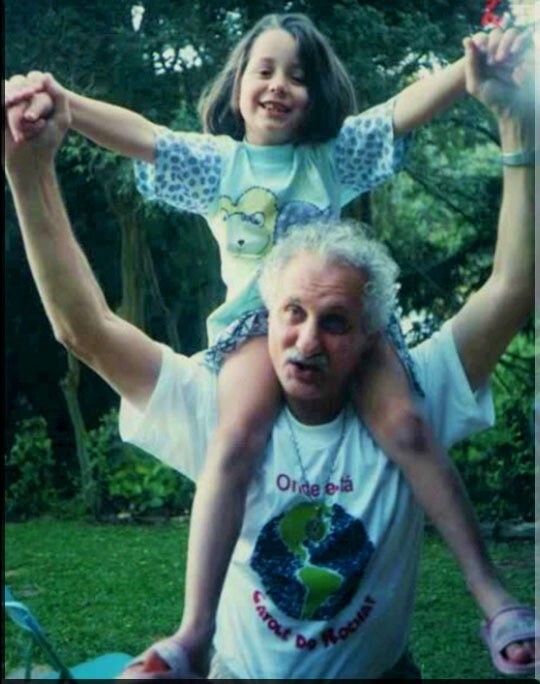
As the booklover he was, Domingos Bernardo liked to cite his favorite authors in his texts. In homage to him, therefore, I end this tribute with a quote from the British poet William Blake, which Bernardo himself adapted and used in his works to speak about ayahuasca.
I reproduce this verse here with a strong feeling that, like my text, it pays tribute to the difference that Bernardo’s work made to the freedom of ayahuasca:
Children of a future age
Reading this indignant page
Know that in a former time
A path to god was thought a crime

Thank you, Domingos Bernardo!
Art by Mariom Luna.
References
Conselho Nacional de Políticas sobre Drogas. (2010). Resolução n.01 de 2010 [Resolution no. 1 of 2010]. Bialabate.net https://www.bialabate.net/wp-content/uploads/2019/11/Resolution_1_CONAD_25_Jan_2010.pdf
Folha de São Paulo. (1995). Advogado diz que família não influi [Lawyer says family does not influence]. (1995, October 22). https://www1.folha.uol.com.br/fsp/1995/10/22/cotidiano/15.html
Blake, W. (2018/1794). Little girl lost. Songs of innocence and of experience. Scott’s Valley, CA: CreateSpace Independent Publishing Platform.
Goulart, S. (2004). Contrastes e continuidades em uma tradição amazônica: as religiões da ayahuasca [Contrasts and continuities in an Amazonian tradition: The ayahuasca religions] (Doctoral dissertation). Unicamp.
Labate, B. C., & Feeney, K. (2012). Ayahuasca and the process of regulation in Brazil and internationally: Implications and challenges. International Journal of Drug Policy, 23(2), 154–161. Conselho Nacional de Políticas sobre Drogas. (2010). Resolução n.01 de 2010. Source: https://www.bialabate.net/wp-content/uploads/2019/11/Resolution_1_CONAD_25_Jan_2010.pdf
Silva Sá, Domingos Bernardo Gialluisi. (2007). A consciência da expansão [Consciousness expansion]. Article originally published in 1996, in Seditious speeches: Crime, law and society (pp. 145–174) year 1, No 2, 2nd sem. Rio de Janeiro: Revan. http://www.neip.info/downloads/domingos/domingos_bernardo.pdf
Take a minute to browse our stock:
Did you enjoy reading this article?
Please support Chacruna's work by donating to us. We are an independent organization and we offer free education and advocacy for psychedelic plant medicines. We are a team of dedicated volunteers!
Can you help Chacruna advance cultural understanding around these substances?


